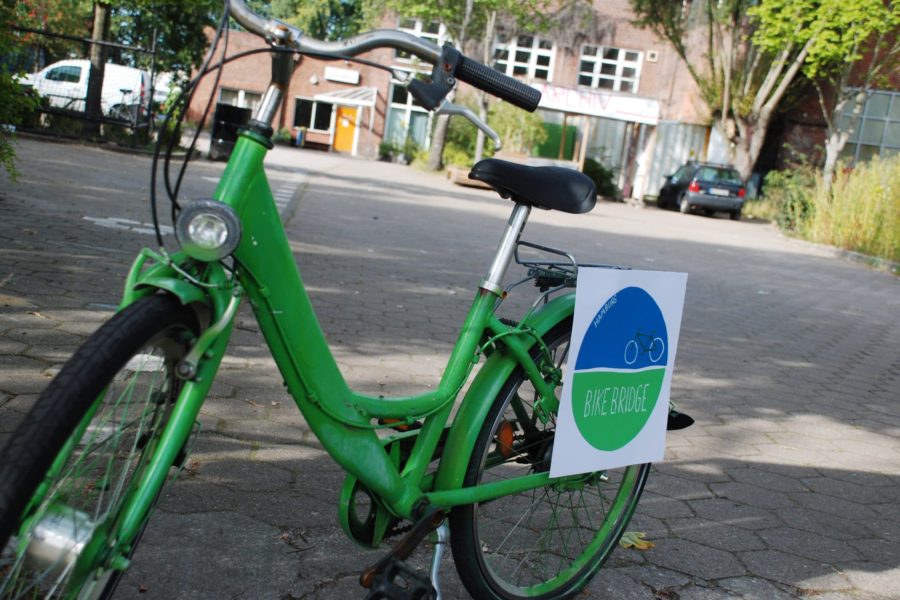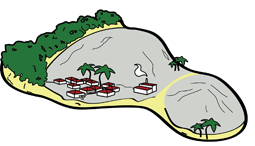Seminar WP 1.1 Applied Statistics WS 30 h (2 SWS) 60 h 3
Im Modul müssen insgesamt 3 ECTS-Punkte erworben werden. Die Präsenzzeit
beträgt 2 Semesterwochenstunden. Inklusive Selbststudium sind etwa 90 Stunden aufzuwenden.
|
Zielsetzung. Die Statistik gehört zu den wichtigsten Werkzeugen der empirischen Wissenschaft und hat durch den Überfluss digitaler Daten über die letzten Jahrzehnte nur an Bedeutung gewonnen. Geographie und Nachhaltigkeitsforschung sind hier keine Ausnahmen – die Erforschung der räumlichen Ungleichverteilung der Konsequenzen des Klimawandels,der Regionalisierung von Innovationsprozessen, die Bewertung der Effektivität eines Policyinstruments oder die Analyse von Einstellungen, Meinungen und Wissen erfordern alle einen sicheren Umgang mit komplexen Daten und Kenntnis grundlegender und fortgeschrittener statistischer Verfahren. Dieser Kurs sieht die Anwendung der zuvor im Studium erlernten statistischen Methoden anhand eines eigens entwickelten Forschungsprojektes vor und dient damit auch als Vorbereitungskurs für die Masterarbeit. Der Kurs begleitet die eigenständige Entwicklung der Projektideen und bietet parallel in mehreren Blocksitzungen eine intensive Einführung in die Programmiersprache R, die als Grundlage für die Umsetzung der Forschungsprojekte dient. |
|
Termin |
Inhalt |
|
16.10.2025, 14-16 |
Begrüßung, Organisation, & Grundlagen |
|
13.11.2025, 14-16 |
Projektpitch I: Projektidee |
|
21.11.2025 (ganztägig) |
R Block I: Grundlagen |
|
28.11.2025 (ganztägig) |
R Block II: Deskriptive Statistik |
|
11.12.2025, 14-16 |
Projektpitch II: Daten & Beschreibung |
|
09.01.2026 (ganztägig) |
R Block III: Inferenzstatistik & Statistische Modelle |
|
22.01.2026, 14-16 |
Projektpitch III: Vorläufige Ergebnisse |
Literatur
Gelman A, Hill J, Vehtari A (2020) Regression and Other Stories, Cambridge: Cambridge University Press.
Healy K (2018) Data Visualization, Princeton: Princeton University Press.
Kuckartz, U., Rädiker, S., Ebert, T., & Schehl, J. (2010). Statistik: Eine verständliche Einführung. Wiesbaden: VS Verlag.
Llaudet, E., Imai, K. (2023). Data Analysis for Social Science: A Friendly and Practical Introduction. Princeton: Princeton University Press.
- Trainer/in: Jakob Hoffmann
- Trainer/in: Imke Hoppe
- Trainer/in: Wenhan Feng
- Trainer/in: Olabisi Obaitor
Das transdisziplinäre Projektseminar 2025-6 im Masterprogramm ‚Humangeographie und Nachhaltigkeit‘ behandelt das Thema „Öffentliche Verkehrsmittel als ‚Dritte Orte‘? Perspektiven, Praktiken und Zukunftsvisionen“.
Dabei stehen drei Fragen im Vordergrund:
Ziel ist es, gemeinsam mit Partnern aus Wissenschaft, Politik und Praxis praxisnahe Forschungsprojekte zur Beantwortung dieser Fragen zu entwickeln und passende Lösungen und Handlungsstrategien zu konzipieren, um mehr Menschen in München für die Nutzung öffentlicher Verkehrsmittel zu gewinnen. Mit den Erkenntnissen aus dem Projektseminar soll ein Beitrag zur Entwicklung eines inklusiven, nachhaltigen und zukunftsfähigen Mobilitätssektors geleistet werden.

- Trainer/in: Henrike Rau

- Trainer/in: Silvana Leiß
- Trainer/in: Monika Popp
- Trainer/in: Henrike Rau
- Trainer/in: Alexandre Pereira Santos
- Trainer/in: Julia Teebken
- Trainer/in: Marie Aschenbrenner
- Trainer/in: Klara Jungkunz
- Trainer/in: Silvana Leiß
- Trainer/in: Monika Popp
- Trainer/in: Henrike Rau
- Trainer/in: Thomas Kox
- Trainer/in: Jan Petzold
- Trainer/in: Eoin Grealis
- Trainer/in: Monika Popp
- Trainer/in: Henrike Rau
- Trainer/in: Barbara Demeterova
- Trainer/in: Sascha Filimon
- Trainer/in: Thomas Hüttner
- Trainer/in: Robert Leiner
- Trainer/in: Philipp Namberger
- Trainer/in: Maximilian Witting
- Trainer/in: Jakob Hoffmann
- Trainer/in: Jakob Hofmann
- Trainer/in: Imke Hoppe
- Trainer/in: Annika Schubert
- Trainer/in: Monika Popp
- Trainer/in: Henrike Rau

